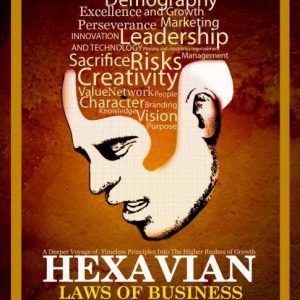You know the “P” in P.E.S.T.E.L stands for Politics, right? Well, I never understood the importance from business school, but I did in watching CEOs before us get burnt by it. No one really explained to us in detail how bloody the red oceans of business are, till we start drowning. In business you can’t be a dolphin amid sharks. Politics is a major determinant. If you were not on the negotiating dinner table, then you’d be on the menu!

While we have micro and macro environments that determine our fate in business, the micros we are more familiar with. The micros include competition, staff, customers, suppliers and other stakeholders directly linked to the business. We think of those as our main enemies. But like the saying goes, the greatest enemies will hide in the places we’d never look at. In this case, it is the macros. Those macro environments are Politics, Economy, Social Systems, Technological, Environment and the Legal. The acronym for this is called PESTEL. In PESTEL, a framework or strategy tool used to analyze and monitor the macro-environmental factors that may have a profound impact on an organization’s performance. PESTEL can seem unexplainable like a copied assignment till you set up a business and come face to face with it.

Let businessmen tell you their stories. All around us are failed businesses from government policies. A few years ago, Efritin.com, a classified ads platform failed due to rising cost of data, and general high cost of doing business. Bata, the shoe manufacturers died due to Nigerian policies opening doorway to foreign competitors in the 90s.

Just recently, when bike-hailing start-ups appeared to be taking off fully in Lagos, Nigeria’s economic city. The state government in a twinkle of an eye enacted policies that scuttled the activities of these companies and even forced them to retrench their staff. In June, Opay raised N18 billion, Gokada raised $5.3 million and Max.ng raised $7 million. A recent ban on the bike hailing business will likely see these humongous investments go down the drain if the policy is not reversed. To every ban and policy, or even its implementation, there is a guy who didn’t carry the key stakeholders along in government as a reason. No matter how brilliant an idea is, we are one policy and political move away from destruction.

From the closure of borders to favour a select few moguls, to consumer rights not being protected with the quality of substandard products that makes it way pass the tests of our agencies of regulations, what we see is that government announcements and moves are more political than functional. Sadly, businessmen need to understand and infiltrate politics to remain in growth. Diplomacy, having allies in power and only throwing punches when extremely necessary but with a smile in a velvet glove is a needed skill. This is important, especially as an aspiring market leader aspiring for big pie size of the quadrants. As you go higher, it gets colder.

Growing to the top is tough. But staying on top is even tougher. The world is designed to attack the cowboy on the hill (for being too visible) and to favor the underdog. This is the classic David and Goliath principle. It should have ideally been so, but In Nigeria, the bigger firms are known to sponsor and play politics that kills the underdog on one end, and on the other end, when that politics goes bad, the government and politics also swallows the cowboy on the hill, the big fish. When you’re up there, you’re so easy to be seen. Stay stealth and away from the limelight as a CEO. Create value through scarcity. But if you’re an underdog, try not to play in isolation. The underdogs (start-ups, SMEs and youths in business) must have the synergy, the people, the alliances, starting from a mastermind group to exit that class; the underdog class.
Also, as an underdog, be frugal with being known publicly with a political alliance. Alter your style and language according to the person you are dealing with. Never be the bearer of bad news.

Politics rules everything, even in business. Factor politics and unforeseen unrests into your business model. Before you argue it, imagine how a war, or even how a new bill by the senate or even a curfew can cripple all your plans. We are all affected by the instability and stability of government. This really refers to the quality of people and decisions therein. We are all affected by trade regulations (e.g. Starting a branded cab service, you’d deal with the likes of NURTW and LASAA). We are affected by tax policies (just recently VAT was increased to 7.5%, this means that every major product we consume will have its pricing increased to reflect that. It’s the P in PESTEL that determines the entry mode and regulations that creates barrier of new entrants to an industry (e.g. the tedious license process between floating a telecoms company and NCC, or to have an airline, you’d have to be at the mercy of FAAN, same as having a gas station and getting DPR/NNPC to approve that, or even setting up food, drugs or beverage, you’d have to face NAFDAC with very unfriendly fees and political connections you must have). In a nutshell, Nigeria due to corruption is for sale to the highest bidder. So, if someone decides to use any of its apparatus against you, that disruption has a direct impact on you, your competitors can also use it against you.
Most people just want to do business and not mind the politics. Well that’s only to a point, till they begin to aim to truly grow or even maybe, become the number one; then they are cut short. The problem with gunning for number one without caring about politics, nation building, government and governance because you think you are growing excellently is myopic. Saying you are not interested in politics in a country like Nigeria is like drowning in water and shouting “I am not interested in swimming!” The side effect of gunning for an enterprise empire with traits of total market dominance is that your competitor ends up becoming the government itself. If the bad policies don’t kill you, lack of infrastructure will. Or worse, a tout in government or close to it will.
If you plan to become your market leader; to grow in your business, it’s never too early, to begin to infiltrate the polity of your regulators. The easiest way to achieve this as a businessman is to be faster than your regulators. Fundamentally, most industry that has regulators are always way slower than the industry dynamics and speed of practitioners. This creates a threat to regulation and a plus for the practitioners who will use that to beat the system. Take for example, NNPC and DPR is slower than retail filling stations, CBN is slower than commercial banks and BDCs, NAFDAC is slower than drug producers, distributors and retailers. SON is slower than importers, NIMASA is slower than shippers, NCC is slower than TELCOS. It’s a major challenge for regulators.
These dynamics isn’t just valid to Nigeria. Overseas, a century ago, as Carnegie pioneered the U.S. steel sector, he wrote the ordinances, made money before government came to regulate it to avoid it from destroying itself! As Mellon, JP Morgan and other financial titans shaped U.S. banking, government waited, and then went in later to regulate the sector at scale. As Amazon devoured retail, U.S. waited until it moved with ecommerce regulations by requesting local tax collection. As Rockefeller changed oil business, he provided the money government used to regulate Standard Oil. He was an oilman and paid the poison pill. Across markets and domains, the private sector has always funded the public sector. Regulation, taxes and those fees are how governments monetize those moments.

To be on top of the politics and regulations, have an in-house gatekeeper with regulatory agencies and government. Also, in a tribal and nepotistic world as ours, having a diversified board of directors from different tribes and religion has its value. Put your best and most relatable foot forward when the occasion rises. Try to choose your battles carefully. Win through courting and not by arguments, else you’d make more enemies than your point. As you begin to grow, create your own inner circle and territory. And then begin to infiltrate theirs. Be involved.
Eizu, ©Hexavia!
Strategy. Business StartUps and Corporate Restructuring Consulting
T: 08035202891
Uwaoma Eizu is the lead strategist at Hexavia! He is a graduate of Mathematics with two MBAs and over a decade of experience working with startups and big businesses. His core is in building startups and in corporate restructuring. He is also a certified member of the Nigerian Institute of Management, Institute of Strategic Management of Nigeria and the Project Management Institute, USA. By the side, he writes weekly for the BusinessDay newspaper.






